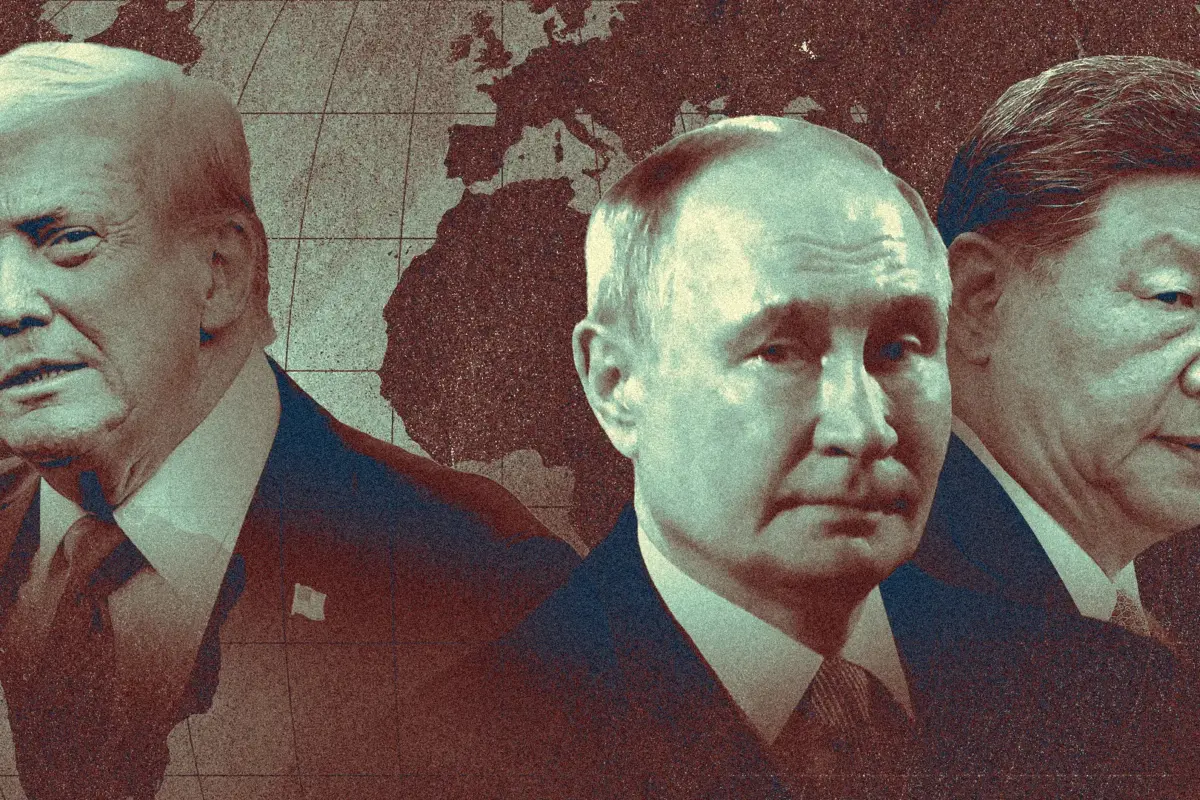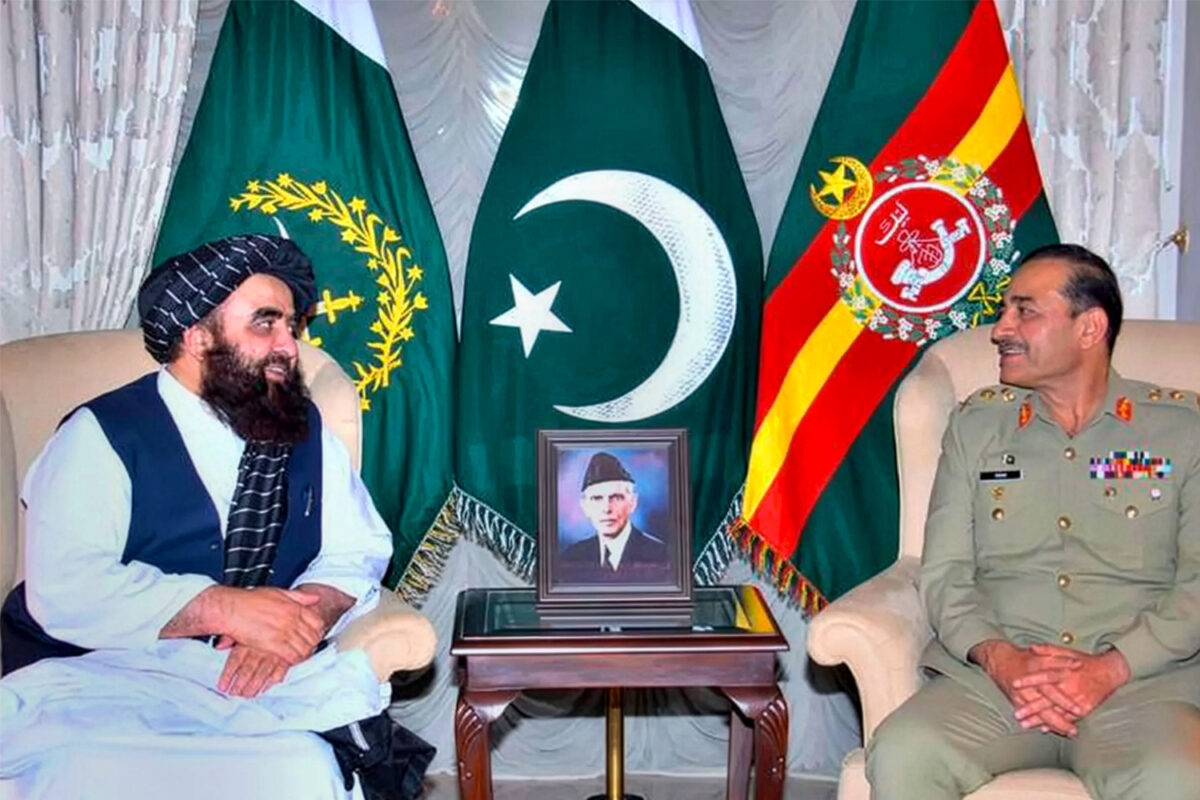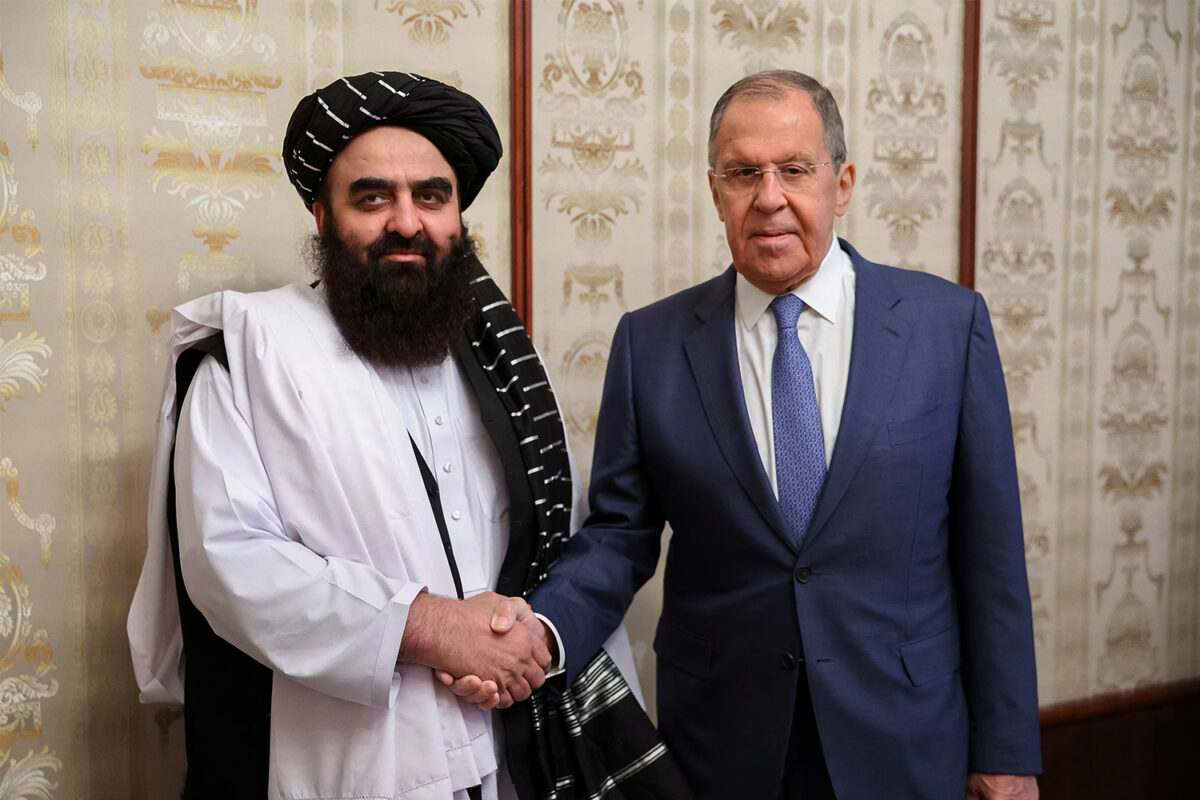In the past month, three security challenges have emerged that gravely threaten the territorial integrity of Pakistan. While the recent conflict with India stands as the most significant, current tensions with Iran and Afghanistan, and the dogged low-intensity insurgencies in Baluchistan and Khyber Pakhtunkhwa do not count among these challenges. [1, 2, 3] The other two major security challenges originate from Israel and the United States. Collectively, this axis of challenges poses an existential threat to Pakistan’s security.
India presents a longstanding but multifaceted security threat to Pakistan. Since 1948, the Kashmir dispute remains the core issue, with frequent escalations and cross-border hostilities, including recent missile and drone strikes by India in May 2025 targeting Pakistan-administered Kashmir and Punjab. Persistent tensions along the Line of Control (LoC) and the brutal repression of Kashmiris have necessitated a massive deployment of troops on both sides of the border to maintain a fragile peace.[4]
Complicating matters further is India’s covert support for Baloch separatist movements, which undermines the viability of critical infrastructure projects such as the China-Pakistan Economic Corridor (CPEC).[5] To make matters worse, the suspension of the Indus Waters Treaty (IWT) has raised serious concerns about Pakistan’s water security and its broader economic implications.[6] The combined impact of India’s threats severely undermines Pakistan’s security, sovereignty, and economic stability.
The combined impact of India’s threats severely undermines Pakistan’s security, sovereignty, and economic stability
The second security concern for Pakistan is the mounting threat posed by Israel in the Middle East, which has escalated sharply following Israel’s recent strikes on Iranian nuclear and military facilities. Pakistan has condemned these attacks as a “unjustified and illegitimate” and a “serious threat” to regional and global security, warning that such actions destabilize the entire region and could have far-reaching consequences.[7] The conflict has already led to surging oil prices, intensifying economic pressures on Pakistan, which relies heavily on energy imports.
Israel’s territorial enlargement— always undertaken under the protection of America’s military might—now outspreads beyond Palestinian lands to encompass substantial portions of Syria and southern Lebanon, further destabilizing the region. With Iraq weakened and Iran facing a strategic setback, Israel is evolving into the de facto policeman for the United States in the region, placing Pakistan within its strategic reach—an influence further accentuated by Israel’s rapidly increasing security and defense relations with India.
This expansion is widely viewed as part of Israel’s pursuit of a “Greater Israel” vision, which seeks to extend its influence and control over neighbouring territories.[8] Combined with the genocide in Gaza and the vicious settlement expansions in West Bank, these actions amplify tensions, fuel resentment across the Muslim world, and raise serious concerns about regional sovereignty and security, particularly for Pakistan.
Nonetheless, the greatest security challenge to Pakistan originates from the United States. In recent years, the U.S. has shifted its strategic partnership from Pakistan to India, designating India as its principal ally in the subcontinent to counter China’s meteoric rise. This realignment is compounded by pervasive Islamophobia in the Trump administration and a shared perspective with Israel and India that the Islamic world must be crushed and dominated.
the US has shifted its strategic partnership from Pakistan to India, designating India as its principal ally in the subcontinent to counter China’s meteoric rise
Additionally, the U.S. has consistently proven to be an untrustworthy ally for Pakistan: America failed to intervene during the 1971 crisis that led to the separation of West Pakistan (Bangladesh), abandoned Pakistan after the Afghan Jihad in the 1990s, rallied against Pakistan in the aftermath of 9/11, and pressured Islamabad to relinquish its strategic depth in Afghanistan.
In stark contrast, the US granted India major nuclear concessions through the Indo-US Civil Nuclear Agreement and NSG waiver, advancing India’s nuclear and energy sectors while barring Pakistan from similar deals—thereby tilting the regional balance in India’s favour and deepening Pakistan’s strategic vulnerability.[9] These actions have left Pakistan increasingly isolated and surrounded by a sea of insecurity in a rapidly changing geopolitical landscape.
When confronting this complex triad of security challenges, Pakistan’s leadership and strategic community remain faithful in their commitment to operate under US leadership and adhere strictly to international law. This unwavering devotion persists even as the US, Israel, and India regularly violate international norms to advance their interests.
By rigidly upholding international law while these adversaries disregard it, Pakistan’s leadership exposes the nation to greater vulnerability and risks, navigating the country toward political self-destruction—much like Iraq, Libya and Iran, which also blindly observed international law to their own detriment.
By rigidly upholding international law while these adversaries disregard it, Pakistan’s leadership exposes the nation to greater vulnerability and risks
Within this context, Pakistan’s strategic community must boldly reflect and force itself to think out of the box when facing these challenges. This implies that the strategic community must liberate its mindset to function independent of U.S. approval, and outside the ambit of international law. The alternative is merely to delay Pakistan’s inevitable destruction until the United States decides to take direct military action in concert with Israel and India.
First, the strategic community must recognize that the international environment has fundamentally changed over the past two decades. Today, countries can openly seize and annex territory with little fear of substantial reprisal from the West. Russia’s annexations of Northern Georgia, Crimea, and Eastern Ukraine; Israel’s seizure of Syrian and Lebanese territory; Azerbaijan’s takeover of Armenian lands; Turkey’s occupation of northern Syria; China’s occupation of the Union Territory of Ladakh and Saudi Arabia’s annexation of parts of Yemen all exemplify this new reality. [10, 11, 12, 13, 14] Even the United States has openly discussed expanding its territory by force, including ambitions to absorb Canada, Greenland, and the Panama Canal.[15] Additionally, the West’s unwavering support for Israel’s genocide in Gaza has greatly exacerbated the efficacy of international law and severely undermined the West’s legitimacy on the global stage.
America’s strategic setbacks in Iraq and Afghanistan, its inability to coerce Russia into a negotiated settlement in Ukraine, and its failure to contain Houthi operations against Israel all underline the limits of U.S. power to shape the international system in its favour. These developments illustrate the accelerating fragmentation of the American-led order, set a new precedent of territorial acquisition by force, and expose the global system’s breakdown to safeguard territorial integrity.
Increasingly, the United States must rely on powerful Islamic powers like Egypt, Türkiye, Pakistan and Indonesia to intervene and safeguard its interests in the region. This clearly suggests that the US no longer views itself as an indispensable power crucial to the stability of the international system. On the contrary, America regards Islamic powers indispensable in maintain its crumbling international order. Without their staunch support, America’s Israeli project will collapse.
Given the shifting international environment, Pakistan now faces fewer constraints to annex occupied Kashmir thereby retaining full control of the main rivers, liberating the oppressed Kashmiris and stabilizing CPEC infrastructure projects.[16]
Given the shifting international environment, Pakistan now faces fewer constraints to annex occupied Kashmir thereby retaining full control of the main rivers, liberating the oppressed Kashmiris and stabilizing CPEC infrastructure projects
Second, the strategic community must reconsider the utility offered by Pakistan’s most prized strategic assets i.e. its nuclear arsenal. Rather than view such weapons as defensive assets, the strategic community must make them a lynchpin of a new regional order that best insulates the Pakistan from the newfound axis of evil—US, Israel and India.
At the heart of this approach, is for Pakistan to extend its nuclear deterrence to Islamic countries in the Middle East, Maghreb countries, and the Far East.[17] This involves Pakistan offering nuclear technical know-how, scientists, nuclear warheads, deployment means, and the maintenance of such weapons all under Pakistan’s security umbrella in return for specific tangible commitments from recipient states. Such an approach could be characterized as follows:
1. Pakistan should offer its nuclear deterrence to the six countries of the Gulf Cooperation Council (GCC) in return for wiping out Pakistan’s debt and a firm pledge to provide Pakistan free energy for 20 years. This will immediately accelerate Pakistan’s efforts to re-industrialize and become an economic powerhouse.
2. A similar deal should be offered to Iran that is reeling under US-Israeli pressure because Tehran lacks an effective nuclear deterrent. In return, Iran is to provide free energy supplies for 20 years and a firm commitment to purchase Pakistani military equipment such as tanks, armored personnel carriers, fighter planes and so forth. The same agreement is presented to Azerbaijan, and in this manner, Pakistan has access to alternative sources of energy that will support its re-industrialization and enable the country to rapidly build a strong military industrial complex.
3. With regards to Türkiye, Pakistan’s nuclear deterrence is exchanged for a mutual defense pact, which includes the transfer of military technology from Turkey such as unmanned aerial vehicles (UAVs) and drones, naval platforms etc. Part of this exchange requires Turkey, to buy Pakistani military weapons and most importantly a pledge to withdraw from NATO with immediate effect. Europe would lose a vital strategic ally on its southeastern flank, severely weakening NATO’s collective security and operational reach in the Middle East and Eastern Mediterranean. For Russia, Turkey’s exit would diminish Western influence in the Black Sea region thereby increasing tensions with Europe.
4. Pakistan should also extend nuclear deterrence to Egypt and the Maghreb countries like Algeria, Morocco and Tunis, as well as Bangladesh, Malaysia and Indonesia in the Far East. Apart from making Southern Europe, Israel and India uncomfortable, Pakistan can also bolster its military, economic and strategic cooperation. For example, with Bangladesh, Pakistan can enter a defence pact where— in the event of India’s belligerence—Bangladesh vows to cut off the Chicken Neck and separate several Indian states from India’s hinterland. Equally, Pakistan can enter into agreements with Malaysia and Indonesia to cut off the Malacca Straits should the need arise.
5. Moreover, Pakistan can integrate these discrete treaties into a single defence pact, where if one Islamic country is attacked conventionally, others will not only come to the rescue but also reserve the right to use nuclear weapons to deter aggression. This type of groundbreaking thinking enables Pakistan to quickly rebuild its industrial capacity; military might and become a dynamo for innovation. It also enhances Pakistan’s credentials to assume leadership over the entire Islamic world and act in unison to take stern action against warring Western powers and their allies.
In sum, Pakistan’s strategic community needs new thinking that capitalises on the fluid international landscape and leverage Pakistan’s nuclear arsenal to build new security frameworks and policies to counter the menacing threat of the axis of evil and preserve Pakistan’s territorial integrity and sovereignty.
[1] Aljazeera, (May 2025). India-Pakistan tensions: A brief history of conflict. Aljazeera. Available at: https://www.aljazeera.com/news/2025/5/9/india-pakistan-tensions-a-brief-history-of-conflict
[2] BBC, (Jan 2024). Iran admits carrying out deadly strike on Pakistan territory. BBC. Available at: https://www.bbc.co.uk/news/world-asia-67999465
[3] Friday Time, (Jan 2025). Fragile Ties: Pakistan-Afghanistan Tensions After Taliban Takeover. Friday Times. Available at: https://thefridaytimes.com/11-Jan-2025/fragile-ties-pakistan-afghanistan-tensions-after-taliban-takeover#
[4] Biswas, S., (May 2025). How India and Pakistan share one of the world’s most dangerous borders. BBC. Available at: https://www.bbc.co.uk/news/articles/cgmj7l0lne3o
[5,6] Modak, S. (Jun 2025). Pakistan Army Chief Rejects Indian Regional Dominance, Calls Water Treaty Suspension Unacceptable. Hans India. Available at: https://www.thehansindia.com/news/international/pakistan-army-chief-rejects-indian-regional-dominance-calls-water-treaty-suspension-unacceptable-977966
[7] The News, (Jun 2025). Pakistan denounces Israeli attacks on Iran, terms them ‘serious threat to entire region’. The News. Available at: https://www.thenews.com.pk/latest/1320839-pakistan-denounces-israeli-attacks-on-iran-terms-them-serious-threat-to-entire-region
[8] The Week, (Oct 2024). What is ‘Greater Israel’? The Week. Available at: https://theweek.com/world-news/what-is-the-greater-israel-movement
[9] Mustafa, M. (2008). THE INDO-US NUCLEAR DEAL: AN OVERVIEW OF IAEA SAFEGUARDS AND NUCLEAR TRADE WITH NSG. Institute of Strategic Studies Islamabad. Vol (28). pp. 39-55.
[10] Gorazde, G. (2024). The Russian Military Aggression in Georgia and Ukraine: a Comparative Analysis. Available at: https://ojs.academicon.pl/tkppan/article/view/9070
[11] RAND, (May 2017). Lessons from Russia’s Operations in Crimea and Eastern Ukraine. RAND. Available at: https://www.rand.org/pubs/research_reports/RR1498.html
[12] India Today, (2022). China continues to illegally occupy approx 38,000 sq km of Indian territory: Govt. India Today. Available at: https://www.indiatoday.in/india/story/china-continues-illegally-occupy-38000-sq-km-of-indian-territory-govt-1908990-2022-02-04
[13] OpenDemocracy, (20222). Will Armenia and Azerbaijan reach a peace deal? OpenDemocracy. Available at: https://www.opendemocracy.net/en/odr/armenia-azerbaijan-peace-deal-nagorno-karabakh-border/
[14] Salhani, J. (Apr 2025). Israel pushes on with strategy to keep neighbors weak in Lebanon and Syria. Aljazeera. Available at: https://www.aljazeera.com/features/2025/4/9/israel-pushes-on-with-strategy-to-keep-neighbours-weak-in-lebanon-and-syria
[15] Ali, R. (Jan 2025). Greenland, Canada, and the Panama Canal: Unpacking Trump’s geopolitical ambitions. AA. Available at: https://www.aa.com.tr/en/americas/greenland-canada-and-the-panama-canal-unpacking-trumps-geopolitical-ambitions/3463781
[16] The Express Tribune, (Nov 2020). Pakistan presents ‘irrefutable evidence’ of India’s sponsorship of terror to sabotage CPEC. The Express Tribune. Available at: https://tribune.com.pk/story/2272201/pakistan-presents-irrefutable-evidence-of-indias-sponsorship-of-terror-to-sabotage-cpec
[17] Urban, M. (Nov 2013). Saudi nuclear weapons ‘on order’ from Pakistan. BBC. Available at: https://www.bbc.co.uk/news/world-middle-east-24823846





One comment
Sohrab Quraishi
8th July 2025 at 9:45 am
I would like to know the name of the writer